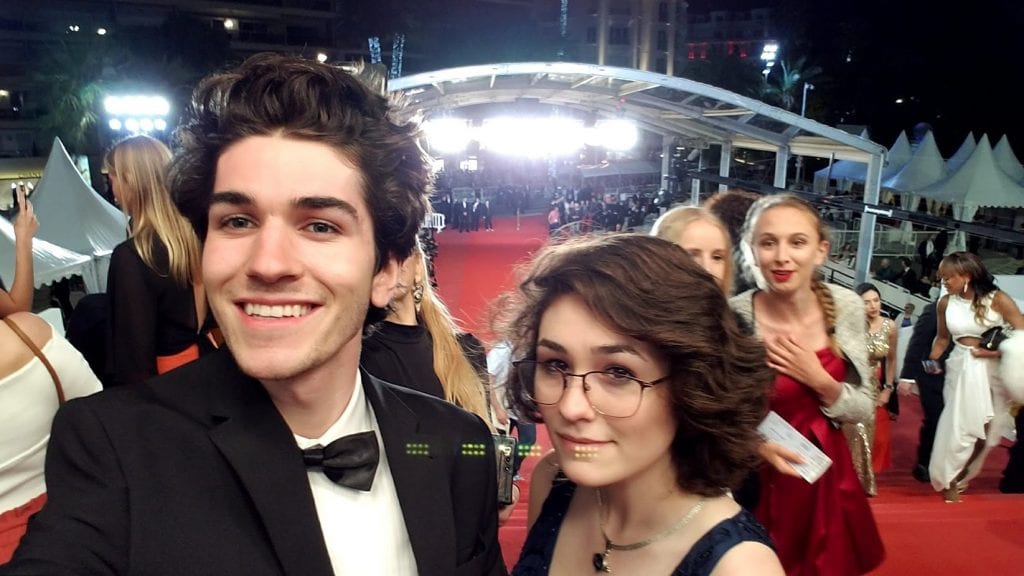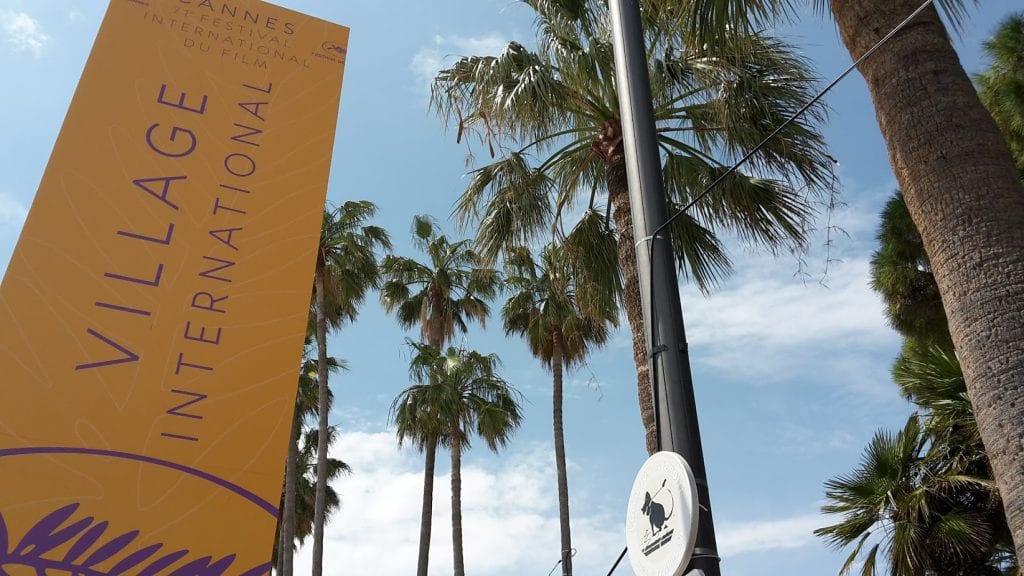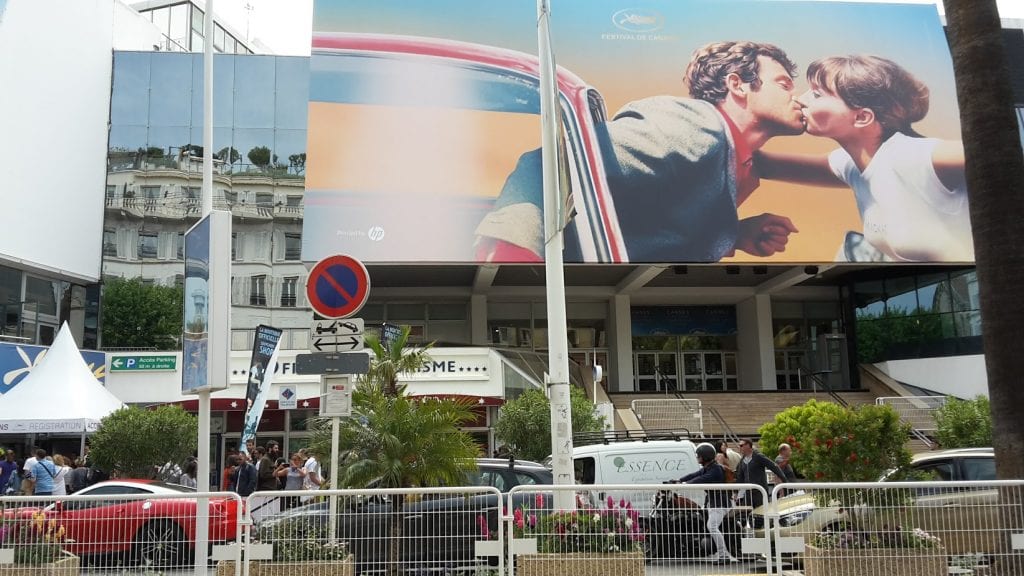Q&A with Illustration major, Jenny Whipple
by Assistant Professor Lisa Kennedy
You Must Be Artificial from Chris K. Daniels on Vimeo.
With just $80 and one week, MassArt Illustration major, Jenny Whipple and film major, Chris Daniels created an award winning short film, “You Must Be Artificial,” which was shown this summer at the Cannes FilmFestival in France. Their film was made for the Campus Movie Fest, a worldwide competition that challenges college students to make a five minute film in a week. Jenny tells us more about the competition and how she works.
The film was made under extreme limitations, such as a week of time and an $80 budget. What was your strategy and attitude in dealing with these types of constraints? Did you have to work with any other limitations?
JW: The limitations created more than a stressful work environment; they created a space in which each member of the team could gain experience in working quickly yet efficiently. The budget felt like the least of our worries, because Chris and I are very used to working with little to no funding for our projects as I’m sure most college students are! I feel the biggest limitation for myself specifically was probably the stress of seeing our shot list and knowing we had to get it done with enough time for Chris to edit it all.
How did these restrictions influence the work in that, how did they enhance it? How were they limiting?
JW: Since every CMF team faced these limitations, I feel as though the limitations were a mostly positive thing. They allow each team to show their core strengths in such an unpolished way, allowing every entry to be really interesting and full of raw potential.
How many hours did it take to make? How did you scheduled the time along with your schoolwork?
JW: Roughly 32 hours for the whole process — Scheduling along with classes was pretty tough, but not impossible. Being in the illustration dept. Made it a bit tougher I feel, since I had my separate workload that didn’t intercept much with the You Must Be Artificial project. It was a lot of late nights talking about the shot list and filming scenes.
What advice can you give to other students and creatives facing time and budget restraints in their work?
JW: I’m definitely not an expert at facing time restraints, but my advice would be to try and stay positive about it. I’ve found that stressing out just wastes more time than necessary. Allow yourself some time to decompress and do something you enjoy, but try not to dwell on how much you have backlogged and instead, make a plan and steadily work your way through it. Budget restraints are as simple as calling in favors and scouting for locations where you are pretty sure they won’t kick you out before you can grab the shot you need!
Are you self taught in filmmaking? How did you learn? What tips can you give to illustrators wanting to work in film?
JW: Just throw yourself into it. Find someone passionate and take anything they can teach you. Chris actually started me out in film back in high school by essentially forcing me to film for him when he didn’t have a camera op, and I just fell in love with it. He started asking my opinion on shots more frequently and we just went from there. Having another person who is passionate about what you want to learn is the most helpful commodity. That and wasting days watching other people’s amazing camerawork and studying up on terminology and famous scenes.
As the cinematographer, what was your role?
JW: For this short film in particular, I assisted with the shot list, lighting and manned the camera for the majority of the shoot (though Chris can’t seem to keep his hands off the camera for 100% of the shots) With such a limited team, we all did more than our job title says, between setting up the room to film in and helping a squirming cast put their contacts in I felt more like a cinematographer and assistant director by the end.
Is there a correlation between your illustration and filmmaking? How so?
JW: There’s definitely a huge correlation. Illustration teaches you to think a lot about composition and how a viewer’s eye will move through a piece, and cinematography focuses on that same composition throughout a scene. I have had the most fun in cinematography when I consciously connect it to problems I have faced in illustration, and particularly enjoy the struggle of thinking about the composition of thousands of frames of video in a single shot.
What inspired the short, “You Must Be Artificial?”
JW: in Chris’ words: “I find the growing development and evolution of Artificial Intelligence in our real world right now incredibly interesting. Though with that, I’ve always been drawn to taking something from the real world and adding a “what if” element to twist and fictionalize things. So with this short, in the very limited amount of time I had to make it, I wanted to create a strongly human and mysterious element to the question of what defines humanity versus artificial beings. I thought the most interesting, compelling way of doing that would be to have two individuals trying to evoke emotion out of each other with a series of intensely personal questions”
How has attending Cannes changed your perspective on filmmaking?
JW: The Cannes Film Festival was the first time I thought about film/video as a potentially viable career path for myself. Before, I saw it as a passion to keep on the side of my illustration, however, after coming back home I’m starting to see all the ways I can incorporate both into a potential career. Whether it’s through set design, concept art, background work, or just as simple as using my illustration work to influence my shot setup and composition, I’m excited to see where the mixing of these two mediums can get me.
Has attending the festival opened up any unexpected opportunities and connections yet?
JW: The most important connections were all of the other inspired filmmakers who were in the short film corner alongside us. I have made some lifelong friends during my time in Cannes and have learned a lot already from their experiences. The craziest opportunities were the networking parties I attended, it was exciting to see the extravagant events held by producers, financiers, and sales agents. My favorite encounter was at a party held in a castle overlooking Cannes where I met a man who told me he punched Harvey Weinstein in the face and knocked him to the ground!
What was the best piece of advice you received at Cannes?
JW: I think the best advice I received was simply to always be working. Even when you feel worn out and uninspired, find something to inspire a little bit of creativity and keep creating. The people who become well known and lucrative in any field are the ones who stay home and work while everyone else is out.
What are you working on next?
JW: Chris and I have worked on multiple projects since You Must Be Artificial. I’m on the writing team for a new show we’re in the developing stages of, and along with six other short films, my own illustration projects, a satirical webseries, and talk about a horror short, I’ve been pretty busy since I’ve returned!
What would you like us to know that I didn’t ask?
JW: Just that, despite the negative response from some faculty in the film department saying that we shouldn’t take this opportunity, I am extremely glad that I took it. This trip to Cannes has been the most influential, inspiring, and overall valuable thing I have encountered since I even started thinking of art as a viable career path. I am thankful to the illustration professors for being so supportive of my decision to attend and making accommodations for me to follow this dream of mine.


